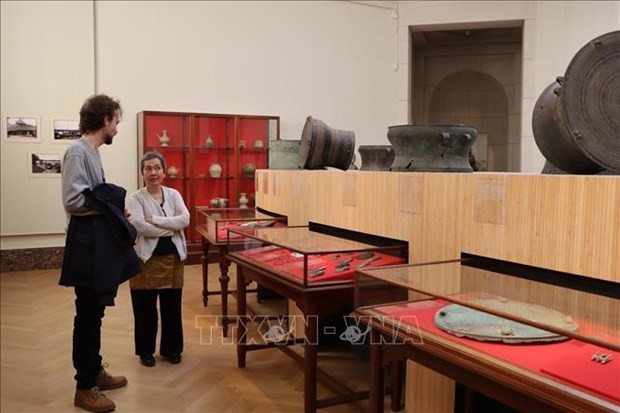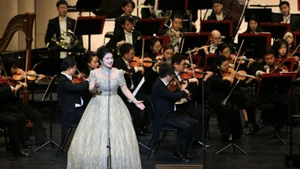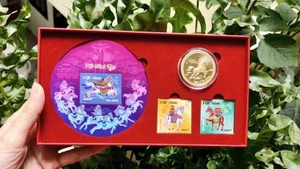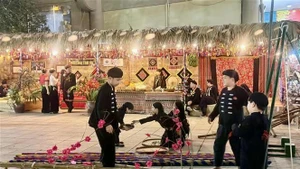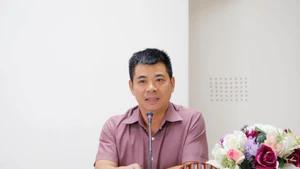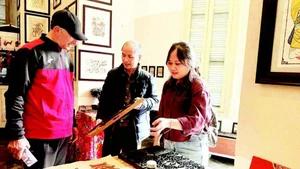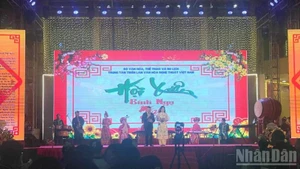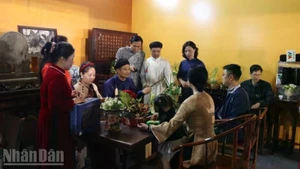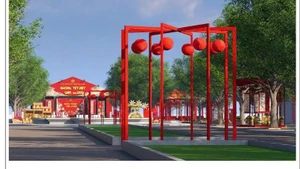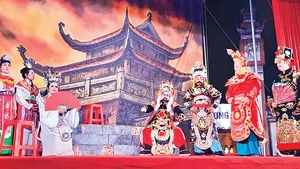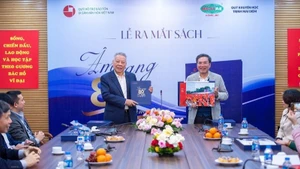Visiting the Southeast Asia area of the museum, visitors will have a chance to explore through the cultures of Vietnam, Cambodia, Thailand, Myanmar, Laos, and Indonesia.
Nearly 3,000 artifacts dating back to before the 15th century are showcased, constituting the largest collection of Vietnamese antiquities abroad, which were acquired by the museum from collector Clément Huet in 1952.
Huet, who worked in Vietnam from 1914 to 1938, amassed a diverse collection of Vietnamese cultural artifacts including ceramics, statues, jewelry, weapons, and ceremonial objects. His collection offers a unique overview of the Vietnamese culture and art before the 20th century.
Bowi Quibus, the curator of the Southeast Asia exhibition area, said that the artifacts are arranged according to two main criteria of chronological order and theme, helping visitors easily track the development of Vietnamese art and culture through different periods, while also gaining a deeper understanding of the country's history and culture.
The highlight of the exhibition room is a Dong Son bronze drum, a unique cultural symbol of Vietnam. Additionally, visitors can admire masterpieces of ceramics from Ly and Tran dynasties.
Logan Vander Linden, a Belgian visitor, expressed his delight in exploring the Vietnamese artifacts at this museum, saying that through observing these antiquities, he gained a deeper understanding of the history of the Southeast Asian nation.
The Vietnamese antiquities collection at the Belgian museum is a testament to the rich cultural and artistic development of Vietnam through various dynasties. The museum serves as an ideal destination for visitors to explore and learn about Vietnam and its people.
Established in 1835, the MRAH currently is home to a vast collection of over 800,000 artifacts encompassing fields such as art, history, and archaeology from countries around the world.
